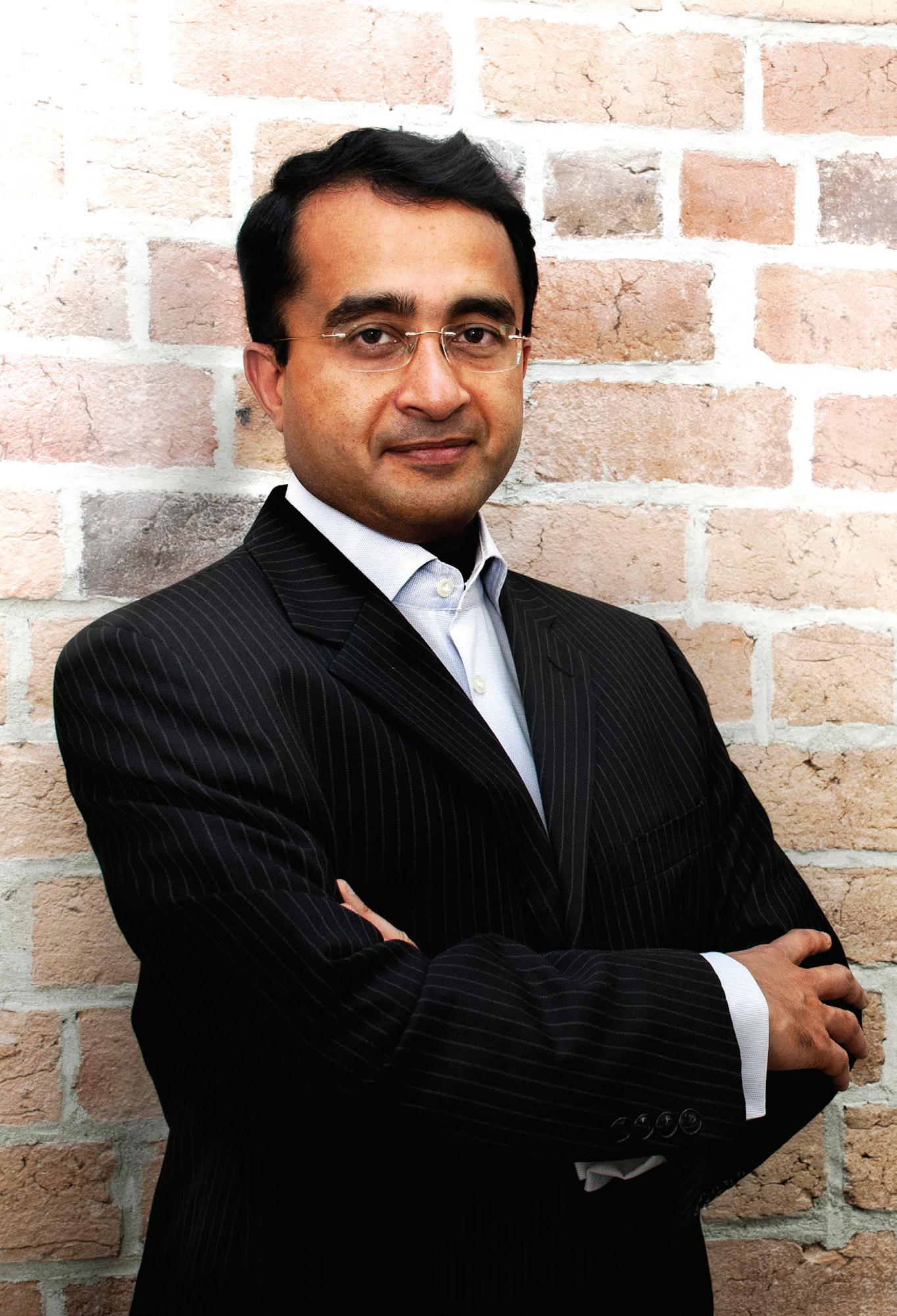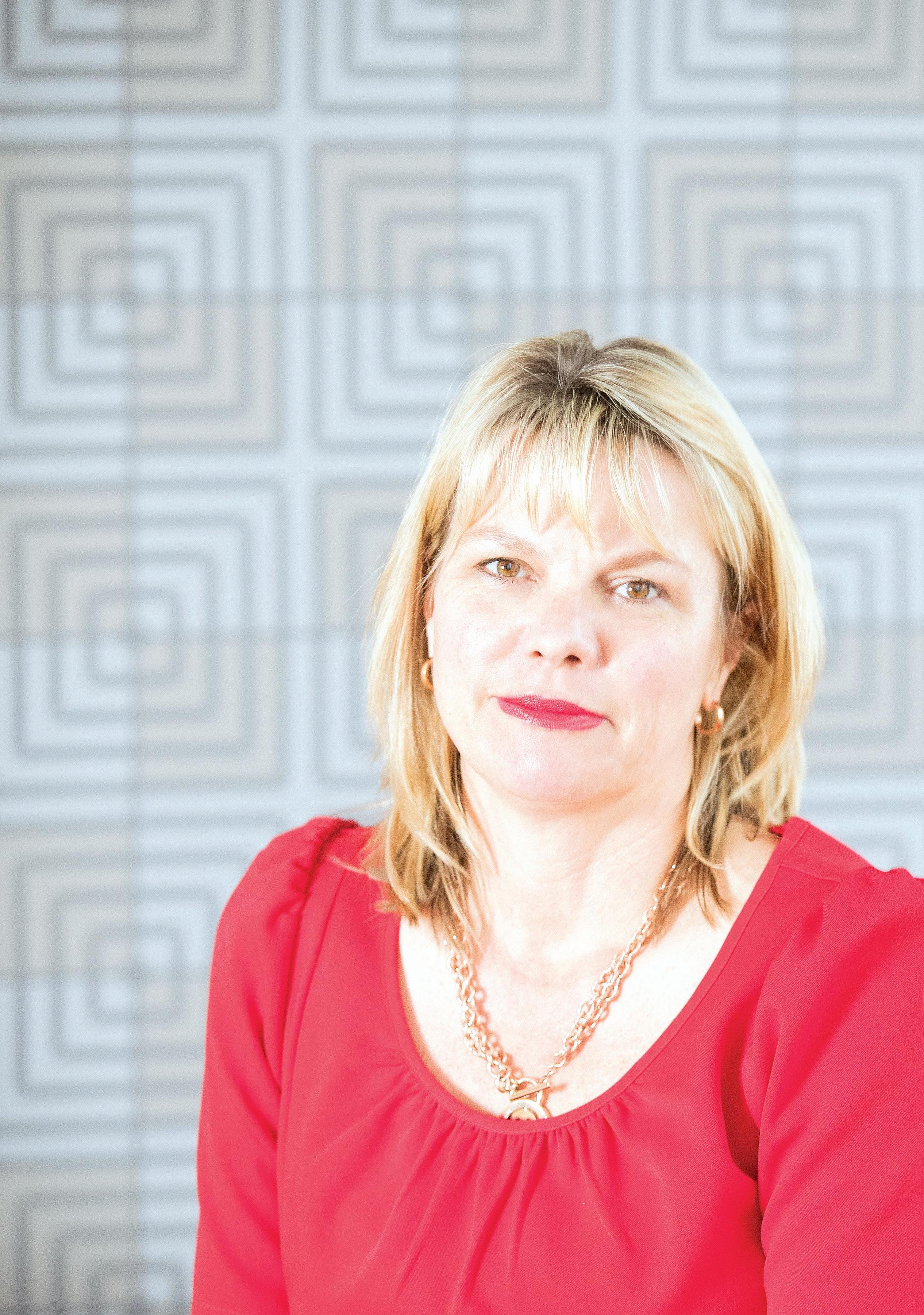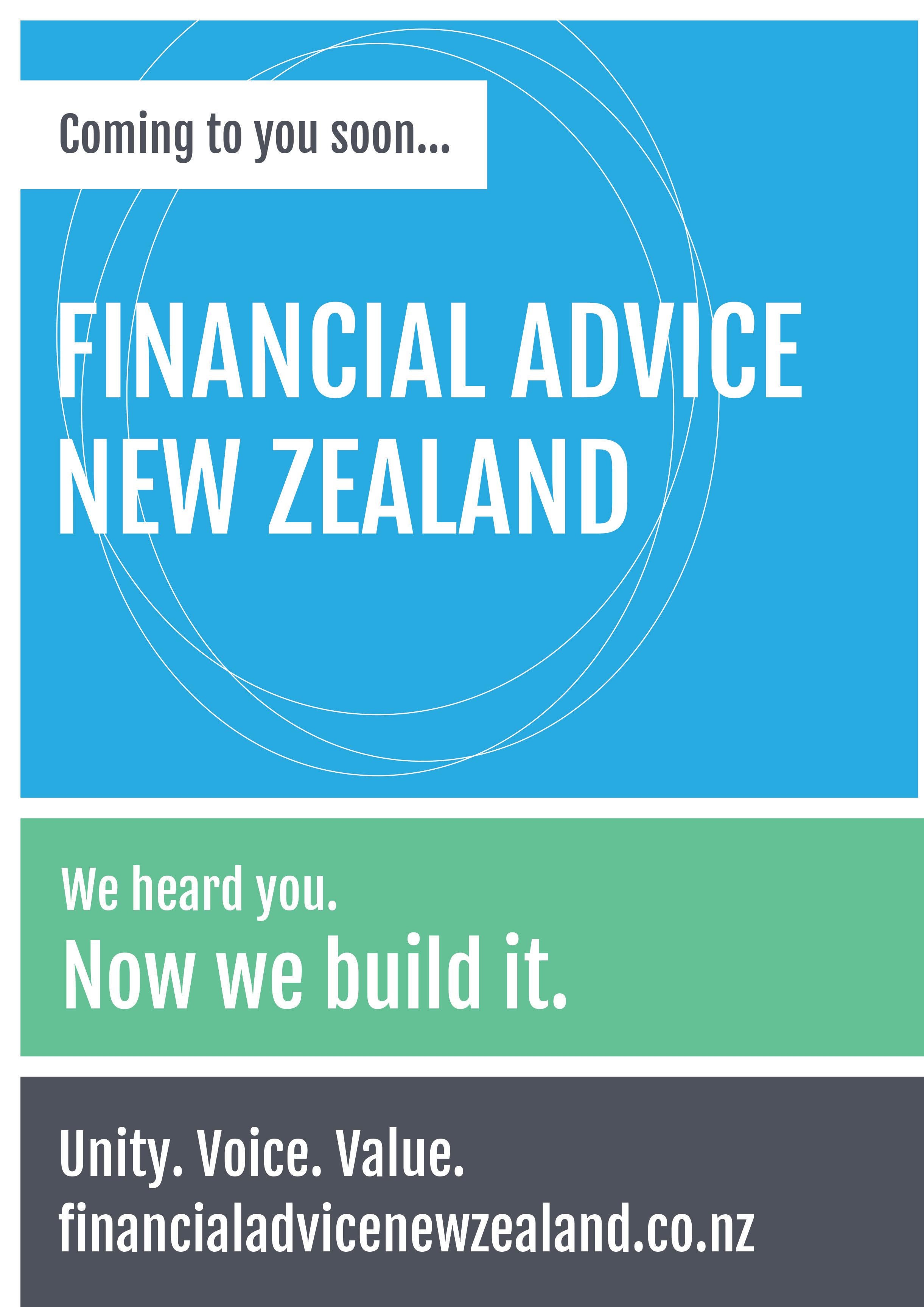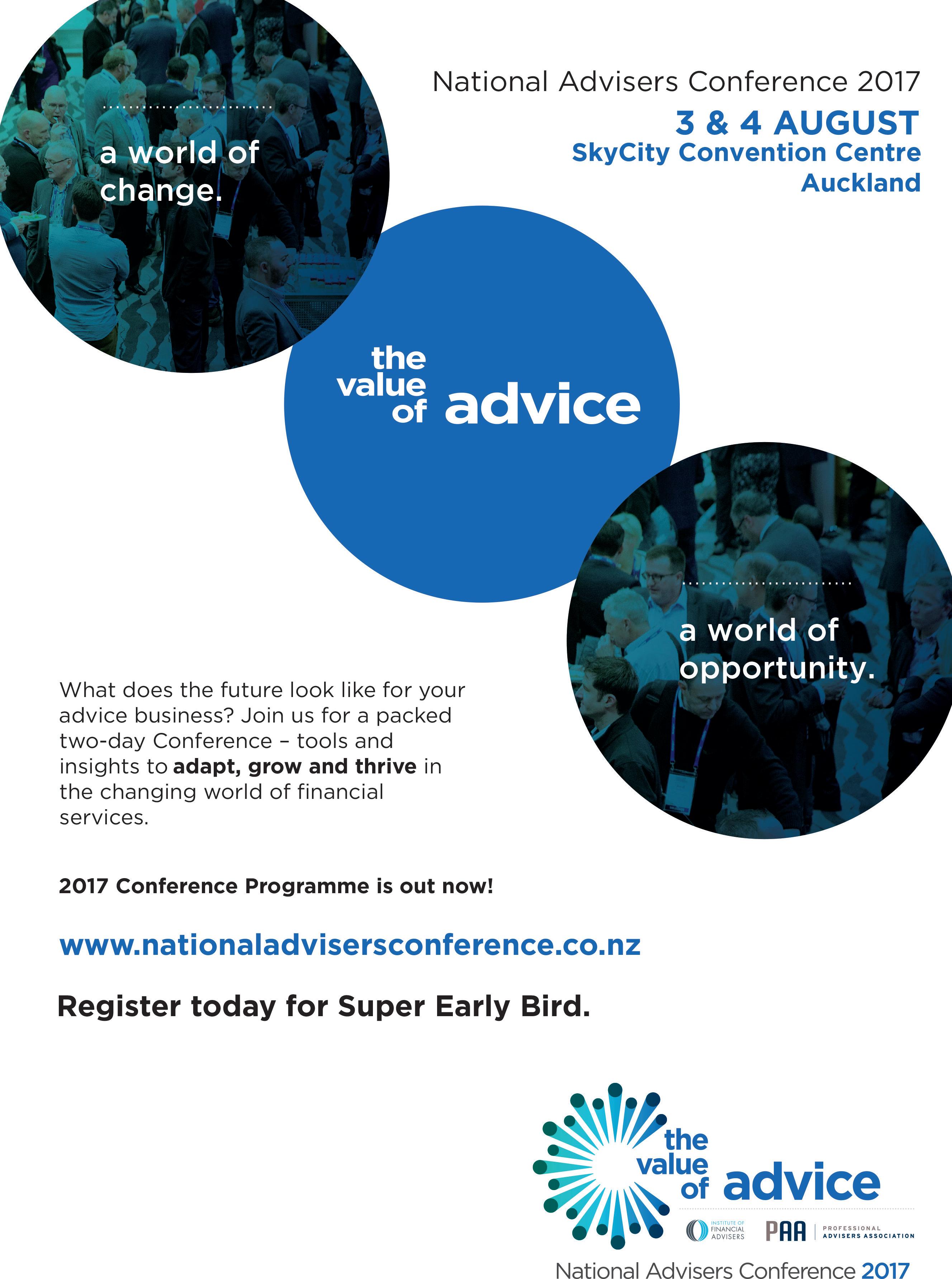
16 minute read
Jennings
from ASSET MARCH 2017
by ASSET
JENNINGS BACKS NEW INSURANCE TECH COMPANY
Mosaic Enterprises Limited
is a New Zealand-owned Insuretech company. It provides digital tools for the financial sector to grow strong customer relationships through an online presence.
Some of these products are unique in the world and will change the way insurers manage their businesses.
Many companies in the financial sector are unable to offer digital solutions for their customers due to back end legacy systems and capital is utilised in other areas rather than meeting the modern needs of customers in an electronic age. Mosaic has recognised this and has developed three tools that the financial sector can use to add value to customers.
The first is a modern online portal for the sale of financial products. Initially it will be targeted at life, health and travel insurance. Then it can be extended to cover fire and general, pet insurance, mortgages and investment products like KiwiSaver. The portal is backed up by a comprehensive CRM and claims system. It uniquely also provides the consumer with ownership and worldwide access to their essential medical data. This significantly reduces the time and cost to the customer and insurer in times of a; medical emergency, travel claim and a medical claim.
The second is a digital lockbox to secure critical documents for the customer called Heartbeat. This is where the medical records, policy documents, passports etc can be stored. It can be accessed from any mobile device or computer anywhere in the world. Critically important if anything happens to you whilst travelling overseas. This unique tool will be highly valued by customers and will be a great retention tool.
The third innovation is the data analytics. Extensive non-personalised medical data collected can be used to assess the medical risk profile of the customer. Suggestions will be put into the lockbox on improving their health profile. This data can be updated every time a medical visit is made, claims made or from wearable devices.
Mosaic has put together a strong board with Murray Lilley the previous founder of Konnect, Dr Geoffery Sayer an epidemiologist, expert at analysing medical data and Milton Jennings, well known in the life insurance market. All directors having a financial interest in Mosaic.
The insurance portal has been well tested in the life insurance market during 2016. Travel insurance has just been added and the Heartbeat lockbox is operational.
Mosaic will be selective in the companies they will deal with in New Zealand. This is the training ground for expanding overseas where the real opportunity lies. The Australian branch is operational and will start trading early 2017. The real growth will come from up in Asia, where a lot of interest has already been expressed.
The company is currently doing a capital raise through Greg Anderson at Northington Partners to allow it to expand into Australia and Asia.
A MAN ON A MISSION
Binu Paul can see huge potential for fintech in this country – if we can all get in line. By Susan Edmunds

Binu Paul had a slightly selfish
motivation for organising last year’s Finnotec conference in Auckland.
The event, attended by 160 people, was designed to showcase the latest fintech products from New Zealand and overseas, and give attendees an idea of what might be coming in the financial services sector.
But Paul, founder of online KiwiSaver research and advice provider SavvyKiwi, says he had an ulterior motive. “I was trying to find out who else is in the same space as
I am. I was finding myself to be quite lonely and I thought I could put this event together to see who turns up.”
The answer turned out to be a lot of people. The Hilton in Auckland had space for 150 in the room Paul booked. He managed to squeeze the extra 10 on to another table but had another 20 on the waiting list.
He said one of the big successes of the conference was the amount of collaboration that had come out of it. “I’ve made about 19 introductions,” he said. “One as recently as this year. That, for me, is a huge success.”
Many fintech start-ups had come out of the woodwork, wanting to be represented, he said. He is already planning another event this year.
Paul has spent the past 18 years in the financial services sector in New Zealand.
Before that, he worked in technology and financial markets roles overseas. He qualified as an engineer but caught the financial markets bug while doing an MBA. “It wasn’t anything fancy that caught my interest,” he says. “I was simply fascinated by the ever-changing dynamics of financial markets and how money was so integral to society and business.”
He moved to New Zealand in the 1990s and had to rebuild his career here from scratch, forging relationships and developing a new network. “A bit of luck - meeting the people
who were willing to take a punt on me and give me an opportunity - and tons of perseverance saw me through those initial years - but those were the years I learnt the most as well,” he says.
Paul held senior positions at FundSource, Tyndall Investment Management and NZ Funds. But in 2013, he quit to commit all his time, energy and money into SavvyKiwi, a fintech start-up. It offers KiwiSaver members a tool to help them choose the right KiwiSaver fund and keep an eye on how it is going. At the moment, 43% of users switch funds when they use the platform. Paul says that’s proof that the product works.
Paul says he is a committed entrepreneur and always has an eye out for an opportunity.
“It's still early days so I'm yet to figure out how 'career defining' that decision [to start SavvyKiwi] is going to turn out to be,” he says. “As much as I'm bullish about SavvyKiwi's prospects, in the start-up world everything is a possibility - including it all ending up being a 'a very expensive education', but education nonetheless. This applies to anyone in business I suppose.”
At the beginning, he worked up to 20 hours a day on SavvyKiwi, often overnight with a development team based in the United States. “In the financial service sector, you can’t really cut corners,” he says.
There were a few key things that were vital, he says.
“It had to be empowering - helping make decisions rather than telling users what to do, it had to be mobile – it’s available as an Apple iTunes app, it had to provide independently sourced insights i.e, not influenced by kickbacks and commissions, and it had to alert users to changes with their fund.”
SavvyKiwi has been well received but the take-up has not been as great as he hoped.
“But, in the context of it being a new product category as well as a New Zealand first with a fully tech-enabled automated platform, I'd say I'm happy with the direction it is taking. What absolutely makes my day is the feedback I do receive from my users. In one instance, I had one of my users sign up not only their whole family but their staff as well.”
One of the key things holding him back may be that he is not devoting much time on marketing or promotion of the site at this stage. At the moment, he’s most focused on trying to make sure that the service he is delivering is the best it can be for SavvyKiwi’s users. For the past six to eight months, he has not run a single marketing initiative.
Many have asked what else SavvyKiwi can do, he says. His plan is to eventually provide something for every point of a person’s financial journey.
“There are a number of things lined up to be rolled out over this year and in the next few years to come. The opportunities aren't going away anywhere so I'm not rushing
" .Taking an advisory business for example, whether you become redundant or not will be determined by 'what' you provide consumers here and now." – Binu Paul
into any of them.”
Money will need to be raised, to invest in the company and to hire the people with the skills to take it to the next level.
But he says the key is to find people to work with who share the same goals and understand the business, as well as fintech more generally.
FINTECH FUTURE
Paul can see huge potential for fintech in New Zealand, and says it will be transformational both for the providers of services and the consumers who use them.
“The consuming public will have a wider choice with the introduction of new types of financial products,” he says.
“It will improve how consumers interact with existing financial products. As social constructs change so will the consumer’s expectation of how they want to be treated and the way they make decisions.
“On the other hand, looking at it as an industry participant, technology allows the ability to commoditise a lot of the repetitive, and what I call, lower order activities. This frees us up to commit our intellect and time to higher order activities like delivering value add to clients, such as coaching and financial discipline.”
A wide range of tools and advice will be needed over the next couple of decades as the world undergoes the biggest intergenerational transfer of wealth it has ever seen, he says.
Paul has spoken to a number of providers developing roboadvice applications. He says some plans have been moved to the back-burner because it looks likely that the Financial Services Legislation Amendment Bill will take two years to clear the way for roboadvice from a regulatory perspective. “It’s not like they will have the opportunity to do it right away. But a number of product providers and intermediaries are looking at a solution. I don’t know if there is space for a whole heap of roboadvisers in New Zealand.”
Incumbents in the market are most likely to succeed with a roboadvice offer, he says, because they have the established customer bases to deal with.
But he says there is a clear difference between a product provider’s tool – which would be just another distribution channel to sell their products – and an advice firm’s online, independent advice offering. “In New Zealand the legislation has brought them both together.”
The key to any financial service provider’s success is the strength of their brand and how much integrity they have, he says.
Paul acknowledges that fintech and roboadvice spark fears of disruption that leave some industry participants, particularly small-scale financial advisers, worried about the future.
“It’s a valid sentiment, only to a certain point.
“Taking an advisory business for example, whether you become redundant or not will be determined by 'what' you provide consumers here and now. If it’s purely transactional in nature, then yes that function will be made redundant, very quickly I must add. But, if anything, the value of true advice and need for good advisers will only become all the important in the new age of fintech.
Paul says, relative to other countries, New Zealand is still in the early stages of fintech development. Here, investors are less used to the dynamics of investing with fintech start-ups, which often require a long-term view. “Typically the return on investment is not frontloaded so you can end up spending a lot of capex upfront with the breakeven down the road.”
Overall the outlook is good – although Paul says a lot more could be done to build the pipeline of talent coming into financial services.
“In the time I have been involved with the industry, it has definitely seen more than its fair share of changes but largely it’s all heading in the right direction. So I do feel positive in that I believe we have a great bunch of people in the industry who I know will collectively head towards the right direction.”
And now, thanks to the conference, he knows he’s not alone in New Zealand’s fintech landscape.
FINDING HER NICHE
Bank adviser says what she does is almost like a social service. By Susan Edmunds

Tracey Coxhead says right now, she’s pretty much exactly where she wants to be.
The ANZ senior private banker has been working in the broader financial services sector since she left school at 17 but made the switch to financial planning later in her 30s.
“It’s just something that has evolved for me,” Coxhead says. “I didn’t know what I wanted to do when I grew up then I turned 35 and realised what I wanted to be was this.”
She started studying for the level five adviser qualification while working as a bank credit manager.
“I just really enjoyed the papers and the whole financial planning aspect of it. There wasn’t so much in the way of financial planning back then. Then I saw a job advertised at Westpac. I said ‘I’m going to apply for one of these’ because it sounded exactly like what I wanted to do and there had not been any jobs in that space before.”
HELPING THOSE IN A QUANDARY
Despite being warned that she might be underqualified for the role, she was offered it. She soon worked her way up to becoming priority sales manager, overseeing lending managers, investment advisers, broker liaison and administration staff looking after the bank’s high-networth clients.
“I just love it; I live and breathe it. In some ways, it’s a bit like my social service to other people as well, family members and things like that. So many people don’t know what to do, it’s just having that framework. It’s just something I really care about.”
From Westpac, she moved to ANZ where she was regional manager of 20 financial advisers in the central North Island.
She then went out on her own with some business partners for seven years as a director of G3 Financial Freedom, based in Tauranga.
She was brought back to an employed role at Heartland Bank as a sales manager when she wanted to change location and shift to Wellington.
Coxhead says there are pros and cons to both working for a bank and being a selfemployed adviser.
“You’re in front of more clients working for a bank and you don’t have to look under every rock for them. There’s more of a client base to work with and from that respect, it’s really good. A lot of people wouldn’t go and get advice anywhere if
they weren’t approached by someone in the branch perhaps to talk to someone else. You’re probably talking to people who were never going to go to an independent, anyway, because it had never occurred to them to talk to someone about their investments.”
Now, as a senior private banker at ANZ Private Banking, she leads a team, handles some lending and looks after investment clients. “I’m a hybrid, they call me, there’s not too many of us. I’m really fortunate I can switch between both. A lot of clients are property investment clients and there are a lot of things they need to consider as well.”
While there are still compliance requirements to meet as an employed adviser, Coxhead said the bank offered a “wonderful safety net”. “The compliance levels and standards are set for us. We are scrupulously checked out, which is great – our quality assurance is fantastic.”
Coxhead joined the Institute of Financial Advisers as soon as she started studying financial planning. She said she could not understand why advisers would not. “They provided all the professional development I needed. Of course, we had professional development in the bank but I was exposed to a lot wider range of things through the IFA. I saw it as going hand in glove, if you’re going to be an adviser, you should belong to the professional organisation that represents them.”
RAISING AWARENESS
She is now a board member of the organisation.
Coxhead said the advice industry had some hurdles to tackle when it came to raising public awareness of its work. “Advisers need to be paid for the work they do; it’s not going to be given away for nothing. And the people who need it most are the least likely to pay for it.”
She said she hoped that as more people invested, the better their knowledge would become. She pointed to Australia, where a lot of information on superannuation savings websites for people who wanted to read it was available. “They have to be interested. People are so interested in iPhones, techy things that cost them money. It’s a shame they’re not more interested in something that’s a bit like breathing really – knowing how to manage your money is as important as your healthcare, surely.”
She said the situation had started to improve and more people were interested but there was still a propensity for some to view KiwiSaver savings as a “Lotto win”. “It’s almost like it’s not real money.”
Advisers should not be afraid to charge a planning fee for the work they did, she said. Coxhead said she never had any trouble getting clients to pay such a fee when she worked as an independent.
“You’re not going to get everyone but not everyone is going to be a client, anyway. I think it’s in our own heads, just give the fee upfront. People charge implementation fees and it’s hard to justify that fee over a planning fee because the work is in the planning.
CHOOSING FINANCIAL PATH
“It’s about willingness to take action. That’s all that really matters. People have to want to do something about improving their investment situation. I’ve always taken the view that if you’ve put aside an hour to talk to me, you want to do something.”
Coxhead is looking forward to helping the IFA with its path towards Financial Advice New Zealand, and to chipping in where she can with professional development initiatives. She is still considering the possibility of a master’s degree.
She said, while she would never rule out a return to self-employment, she was very happy with what she was doing at the bank.
“I kind of feel like I’ve ticked a lot of my things off now. You sometimes get to a stage in life where you are happy where you are and you just want to keep doing a good job.”




